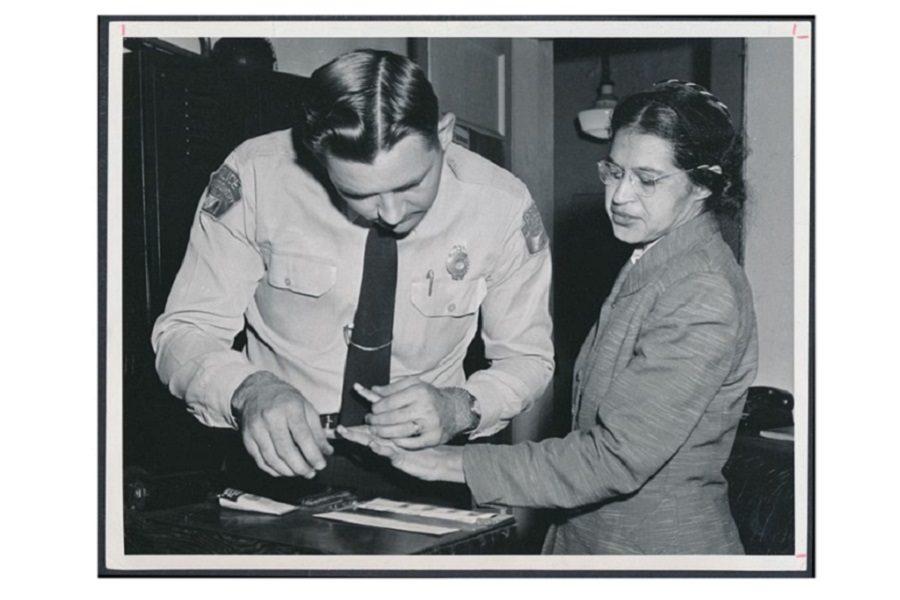Remembering Rosa
In light of Black History Month this February, it is crucial to remember the important figures who have shaped our country into what it is today. The Montgomery Bus Boycott of 1955 sparked a national movement for Civil Rights in America and introduced the world to a woman who would be spoken about for years to come as the “Mother of the Civil Rights Movement.”
Rosa McCauley, born February 4, 1913 to Leona and James, grew up in Tuskegee, Alabama and later married Raymond Parks at age 19. She worked as a seamstress and soon became a prominent member in the civil rights movement during the Jim Crow Laws that worked to segregate people based on race which applied to places like schools, busses, and even libraries. Raymond was a member of the National Associate for the Advancement of Colored People (NAACP), which Rosa joined in 1943.
On December 1, 1955, Parks, then 42, was arrested, fingerprinted, and jailed after refusing to give up her bus seat to a white passenger once the “white section” of the bus was full. She was later bailed out of jail by friend Edgar Nixon and employer Clifford Durr, charged four days later with violating segregation laws, and ultimately fined $10 along with a $4 court fee. In her autobiography, Rosa writes of the experience, “People always say I didn’t give up my seat because I was tired, but that isn’t true…. The only tired I was, was tired of giving in.”
A 381-day national boycott of the Montgomery bus line began on December 5, 1955, one day after Parks’ court hearing, giving incentive for another 40,000 African-Americans to refuse rides on the bus. Some of these individuals walked, took a taxi for 10 cents driven by other African-American drivers, or carpooled together. Black leaders of the movement went on to form the Montgomery Improvement Association (MIA). Then-26-year-old activist Martin Luther King Jr, who would give his famous “I Have a Dream” speech in Washington, D.C. less than ten years later, was appointed president. The group extended the boycott until demands were met, finally ending it on December 20, 1956 after the Supreme Court ruled that segregation on busses was unconstitutional.
After the boycott, Rosa founded the Southern Christian Leadership Conference (SCLC) in 1963 which worked to end discrimination and segregation in the south. That same year, the famous March on Washington was lead by King on August 28, now being recognized in as one of the largest political rallies in history with over 200,000 participants and protesters.
In 1996, President Clinton awarded Rosa Parks the Medal of Freedom and three years later, she was awarded with the Congressional Gold Medal, by Congress, for her influence and work during the Civil Rights Movement. Parks lived out the remainder of her life in Detroit, Michigan and died at the age of 92 in 2005.
Even after 60 years, “The Mother of the Civil Rights Movement” will continue to be remembered for her bravery and resistance in what would pave the way toward equality in the United States for years to come.
Copyright © Cheyenne Prouty (2017) All Rights Reserved.







